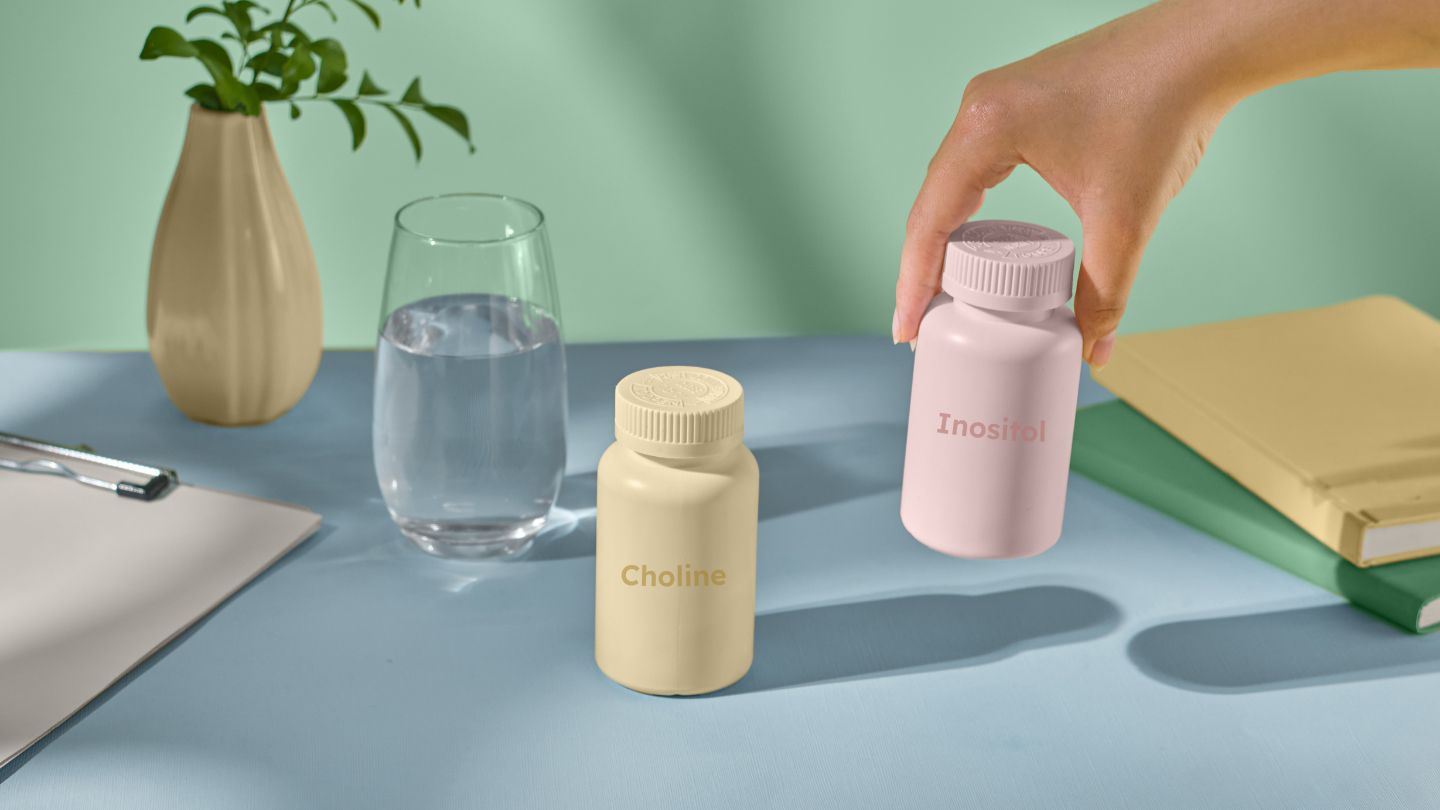Choline and inositol are two essential nutrients that play critical roles in supporting overall health, particularly brain function and cellular structural integrity. While they’re often grouped with B vitamins due to their similar functions, choline and inositol play distinct roles individually and may work particularly well together. Both can be found in foods, as well as in supplements.
Health Benefits of Choline
Choline is an essential nutrient with many important functions. Choline supports:
- Cellular Integrity Choline provides a crucial building block for the fats that make up the protective outer membrane of every cell in your body.
- Brain and Neural Health Choline helps the body produce acetylcholine, an important neurotransmitter for memory, mood, muscle control, and other brain and nervous system functions.
- Fat Metabolism Choline helps transport fats out of the liver to be used for energy and other functions throughout the body.
- Liver Health By managing fat metabolism, choline helps prevent fats from building up in the liver and causing a condition known as nonalcoholic fatty liver disease (NAFLD).
The liver does produce small amounts of choline, but it typically doesn’t make enough to support an individual’s biological needs, which is why it’s important to get it from foods you eat or a dietary supplement.
While very rare, choline deficiency is associated with muscle damage, liver damage, and the development of NAFLD.
How Much Choline Do You Need?
The adequate daily intake of choline for adults ranges from 425 milligrams (mg) for women to 550 mg for men. Choline can be sourced fairly easily from your diet. Good animal-based food sources of choline include eggs, beef, chicken breast, and cod, while some of the best plant-based food sources of choline include soybeans, red potatoes, kidney beans, and quinoa.
Health Benefits of Inositol
Inositol is a sugar-like compound that’s naturally present in many plants and animals and produced in the human body. The most common forms are myo-inositol and D-chiro-inositol. Inositol is sometimes referred to as vitamin B8, although it’s not actually a vitamin.
The body needs inositol in small amounts to support cell development and growth, as well as communication and signaling between cells. Inositol may also support:
- Metabolic Health Inositol may affect insulin in a way that reduces one’s risk of metabolic syndrome, including diabetes, heart disease, and stroke.
- Hormone Health Taking inositol, especially alongside folic acid, may help ease symptoms of polycystic ovarian syndrome (PCOS), a common hormone disorder.
- Mental Health Inositol may also affect the amount of chemical messengers serotonin and dopamine in the brain, which may help improve symptoms of depression.
How Much Inositol Do You Need?
There’s no recommended daily allowance (RDA) for inositol, so if you’re considering taking a supplement, consult your healthcare provider for guidance on what form of inositol best supports your needs and what dosage may be effective for you. The supplements are sold as both tablets and capsules.
You can also get inositol from food, and most people in the United States most likely consume about 1 gram (g) of inositol daily via their diet. Meat is a good animal-based food source of inositol, while fruits, corn, beans, grains, and legumes can be helpful plant-based food sources of the nutrient.
Should You Take Choline and Inositol Together?
While some say choline and inositol work particularly well together in supporting overall health, limited human subject research is available to confirm such synergistic effects. If you’re interested in supplementing with both choline and inositol to complement your daily diet, talk to your doctor about your goals, whether this combination may support them, and the safest way to go about adding them to your wellness regimen.
Read the full article here




